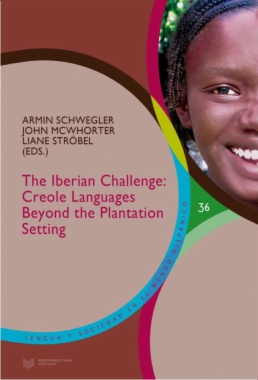Creole languages lexified by Spanish and Portuguese have played a relatively small role in theories of creole genesis. This volume argues that there is not a priori reason to give English and French-based plantation creoles a preferential treatment, but shows that Iberian-based creoles demonstrate a diversity of complex circumstances that any overarching theory of creole genesis ought to take into account.
- Cover
- Title page
- Copyright page
- Contents
- Acknowledgments����������������������
- Introduction (Armin Schwegler, John McWhorter & Liane Ströbel��������������������������������������������������������������������
- Alain Kihm & Jean-Louis Rougé, Once more on the genesis of West African Portuguese creoles
- John McWhorter, The missing Spanish creoles are still missing: Revisiting Afrogenesis and its implications for a coherent theory of creole genesis
- Bart Jacobs & Nicolas Quint, On the relevance of Classical Portuguese features in four Atlantic creoles
- Ana R. Luís & Paulo Estudante, Documenting 17th-century Língua de Preto: Evidence from the Coimbra archives
- Michelle Li, Macau Pidgin Portuguese and Creole Portuguese: A continuum?
- Marilola Pérez, Philippine Creole Spanish (“Chabacano”): Accusative marking in Caviteño. Grammatical and discursive functions
- John M. Lipski, Palenquero and Spanish: What’s in the mix?
- Paola E. Dussias, Jason W. Gullifer & Timothy J. Poepsel, How psycholinguistics can inform contact linguistics: converging evidence against a decreolization view of Palenquero
- Miguel Gutiérrez Maté, Reconstructing the linguistic history of palenques. On the nature and relevance of colonial documents
- Armin Schwegler, Truth reset: Pragmatics in Palenquero negation
- Contributors�������������������

